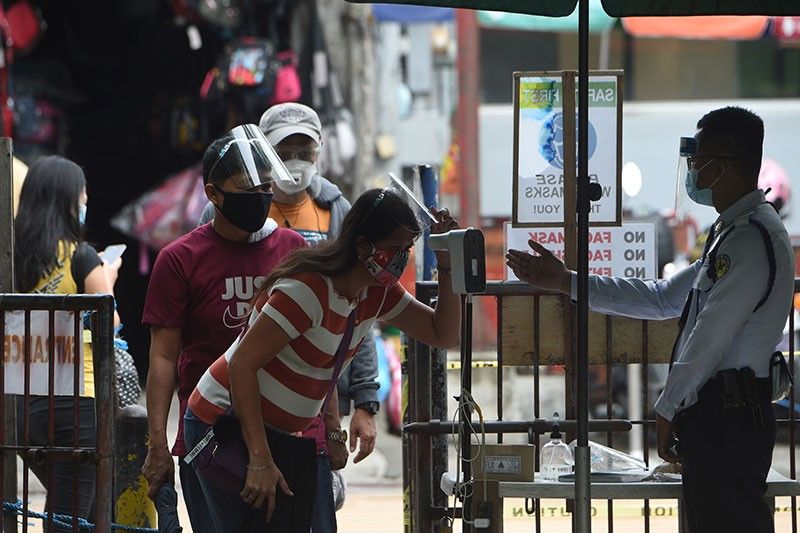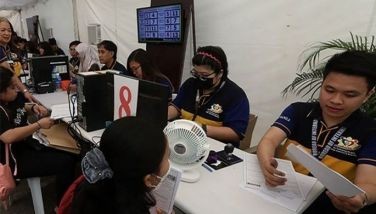Perennial problem of sluggish spending hampers Duterte's stimulus

MANILA, Philippines — The Duterte administration’s stimulus to rebound from the pandemic is getting hampered by persistent and long-standing problem of sluggish release of funds and spending.
Over a month since President Rodrigo Duterte was granted an additional P140 billion to fight the health crisis, only P4.4 billion had been released to state agencies, data from Department of Budget and Management (DBM) released Tuesday evening showed.
To make matters worse, even under the existing P4.1-trillion outlay, around P46.2 billion has been held up pending the approval of Office of the President to release them. Budget Assistant Secretary Rolando Toledo could not say when the rest of funding will be released.
“We are expecting departments/agencies to submit their budget requests to the DBM soon so we can recommend these requests to the Office of the President and release the funds as soon as possible,” Toledo said in a Viber message.
It was unclear for how long funds had been stuck with Duterte’s office, but what is certain is that stimulus funds lodged under Republic Act 11494 or the Bayanihan to Recover As One Act are not getting deployed with haste.
In turn, projects from farmer assistance worth P11.63 billion to cash subsidies to informal workers amounting to P8 billion are getting stuck and could not offer reprieve to intended beneficiaries. The same case can be said of the P20.58 billion supposedly financing the hazard pay and allowances of medical front-liners.
More broadly though, delayed spending of Bayanihan II funds risks disrupting an already-slow recovery from lockdowns that pushed the economy deep into recession in the second quarter. From January to June, gross domestic product shrank 9% year-on-year, running above the government’s 6% assumption.
“GDP economic contraction would continue to be relatively deeper than otherwise in 4Q (fourth quarter) of 2020,” Michael Ricafort, chief economist at Rizal Commercial Banking Corp., said in a text message.
“Given the fact that approvals and deployment need to be completed in less than 2 months, the schedule is already tight and expediency is key right now to have a positive impact on economic recovery program,” he added.
Under Bayanihan II, Duterte’s power to move around funds in the 2020 outlay was extended until December 29 after ending in June under the precedent law, Bayanihan to Heal As One Act. This was meant to allow government to bankroll programs responding to the pandemic which were not outlined in the original outlay crafted last year.
'Deplorable and inexcusable'
On top of that, legislators also earmarked an additional P140 billion for various subsidies and aid, a rather tempered amount as the economic managers insisted to keep spending in check and the budget deficit under control. The snail-paced spending despite getting their wishes for a smaller stimulus prompted Senate Minority Leader Franklin Drilon on Tuesday to blast the delays as “deplorable and inexcusable” on the part of the Executive department.
So far, budget data showed only three national state agencies and local government units have benefited from Bayanihan II funds. The biggest allocations went to the local government agency that was allotted P2.52 billion to hire contact tracers, and Office of Civil Defense with P855.19 million for building isolation facilities for coronavirus disease-2019 (COVID-19) patients.
The foreign affairs department secured P820 million for assistance to overseas Filipinos, while cities, provinces and municipalities shared P215.47 million for COVID-19-related programs.
For Ruben Carlo Asuncion, chief economist at UnionBank of the Philippines, challenges in rolling out stimulus funds appear to be systemic in nature. “I think it has to be clear that the perennial problem is institutional in nature where there are spending bottlenecks along the way,” he said in a text message.
“This was already shown in the distribution of (social amelioration program) to people who most need it. It wouldn’t be a surprise if we would encounter the same challenges again,” he said.
- Latest
- Trending
































